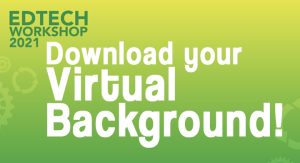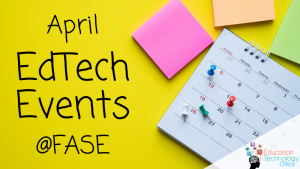EdTech Workshop 2021
Download your Virtual Background!
Are you joining us for the EdTech Workshop 2021? Show some digital flare!
Read MoreApril EdTech Events
Upcoming events: U of T Events | Events beyond U of T | EdTech Workshop 2021
Read MoreMarch EdTech Events
Upcoming events: Click to register for Online tools for effective and efficient feedback (postponed) | EdTech Workshop 2021
Read More

